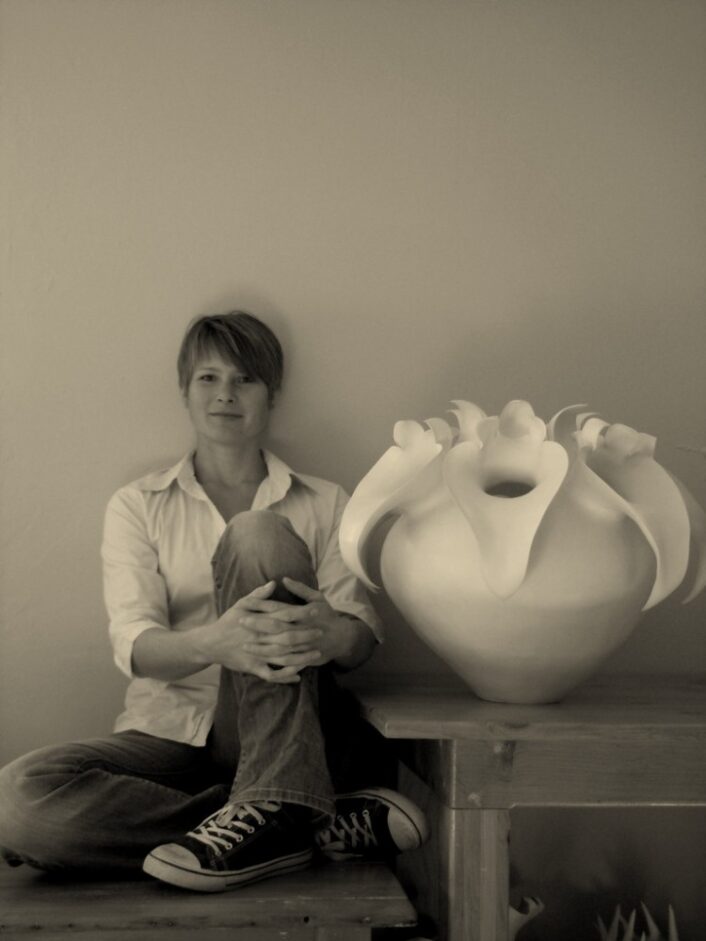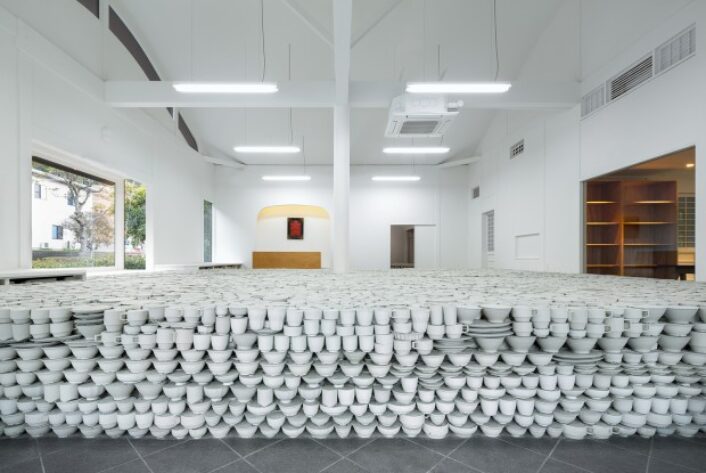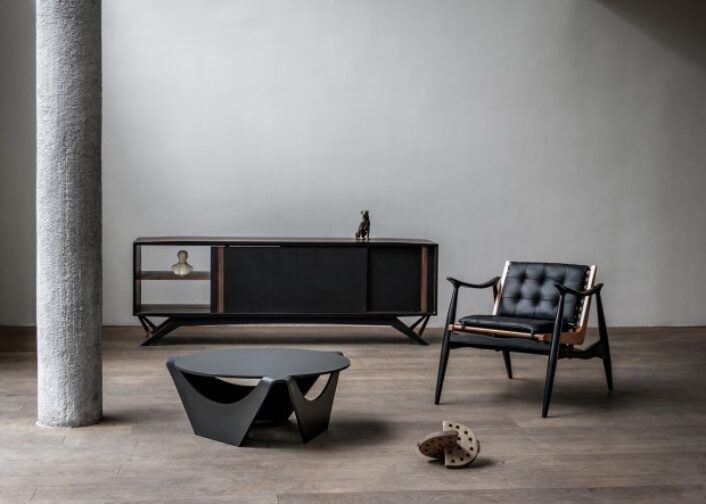Fine Art
Bosco Sodi’s Caryatides

Bosco Sodi’s Caryatides. Untitled… Sodi’s prefers to keep his pieces “untitled” in order to dismiss any predisposed ideas about the paintings, or in this case, the sculptures. Image courtesy of Staging Artsy
The Mexican artist, Bosco Sodi, is best know for his large-scale paintings which are usually richly textured and colorful. Sodi’s newest collection is different and worth noting! We love the look of Sodi’s “Carytides” which were recently featured at Paul Kasmin Gallery in New York City.
Historically, carytides were draped female figures which took the place of architectural columns. Obviously, Sodi’s caryatids aren’t used as structural support elements in temples; but they are inspiring nonetheless.
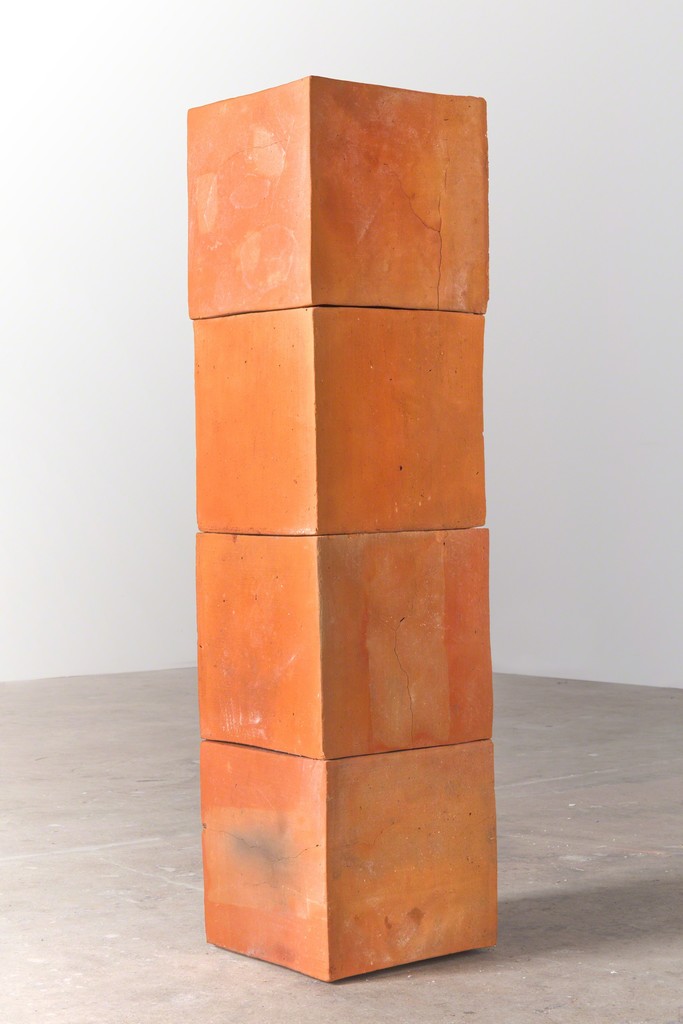
Clay cubes. 45 3/4 × 11 2/5 × 11 2/5 inches (116.2 × 29 × 29 cm). Image courtesy of: Staging Artsy
Sodi uses a minimalistic approach and begins each of his sculptures by extracting raw earth and mixing it with sand and water to form clay. The clay is shaped and smoothed by hand and formed into solid cubes that are then left to air dry outside his Oaxacan studio. The hot Mexican sun bakes these cubes and once they’re ready, they’re fired in a traditional brick oven kiln. What gives the cubes a variation of colors is that they’re fired with an assortment of jacaranda seeds, wood and coconut shells. Streaks of green and black, along with some fissures along the surface give each cube it’s own look!
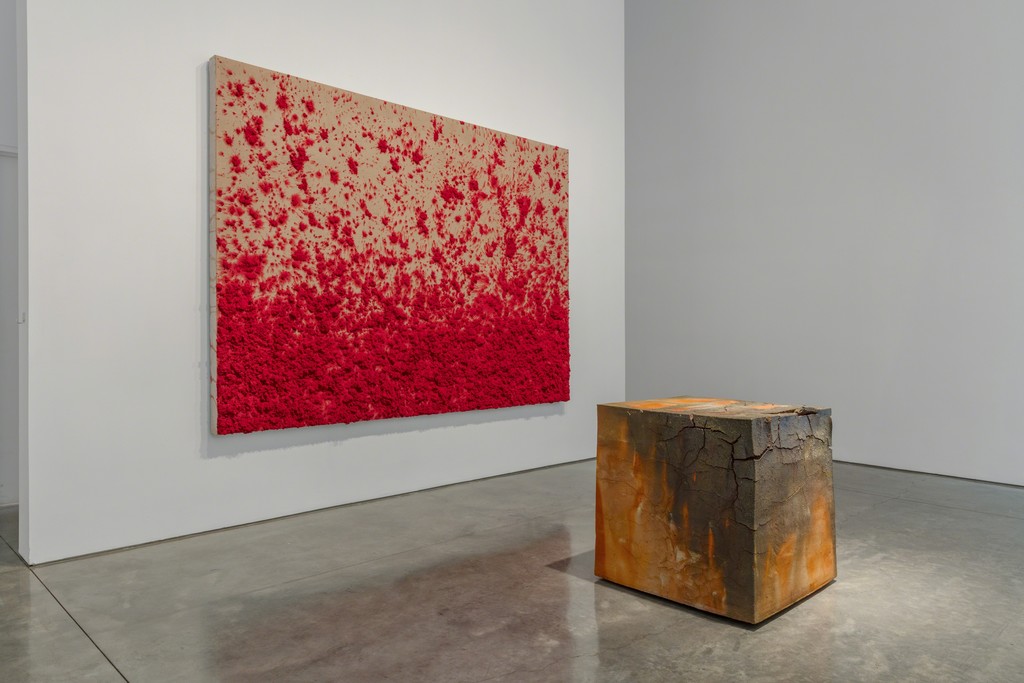
Image courtesy of Staging Artsy
The Wabi-sabi worldview of aesthetics is that “Beauty is expressed in imperfection, transience and simplicity”. Clearly evident in his work is that Sodi subscribes to the same perspective. Cubes represent basic geometry and a simple unit of mass. Once stacked, the cubes can be stacked together to allow for many possibilities.
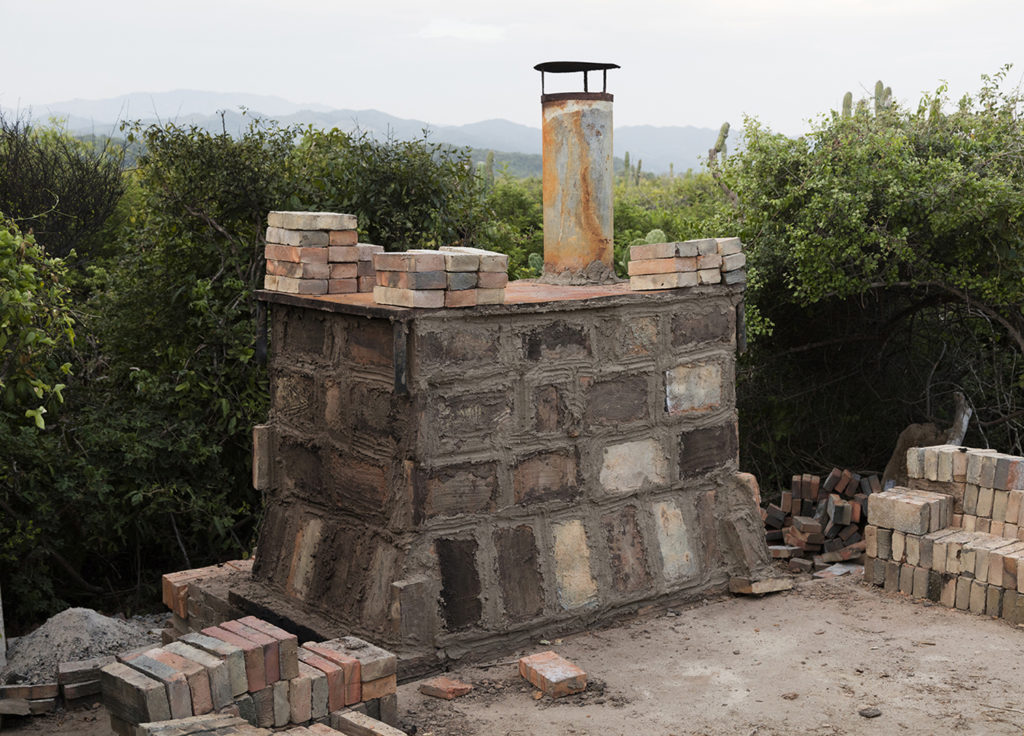
An example of the traditional Oaxaca kiln where bricks back for up to 14 hours! Image courtesy of Galerie Magazine
Sodi began the process by creating small cubes roughly 10 by 10 inches. As he experimented, Sodi’s shapes grew to more than three times their original size. Utilizing the help of traditionally-trained workers and a donkey-powered mixer, each cube can take several hours to construct… that’s why they air-dry for up to four months.
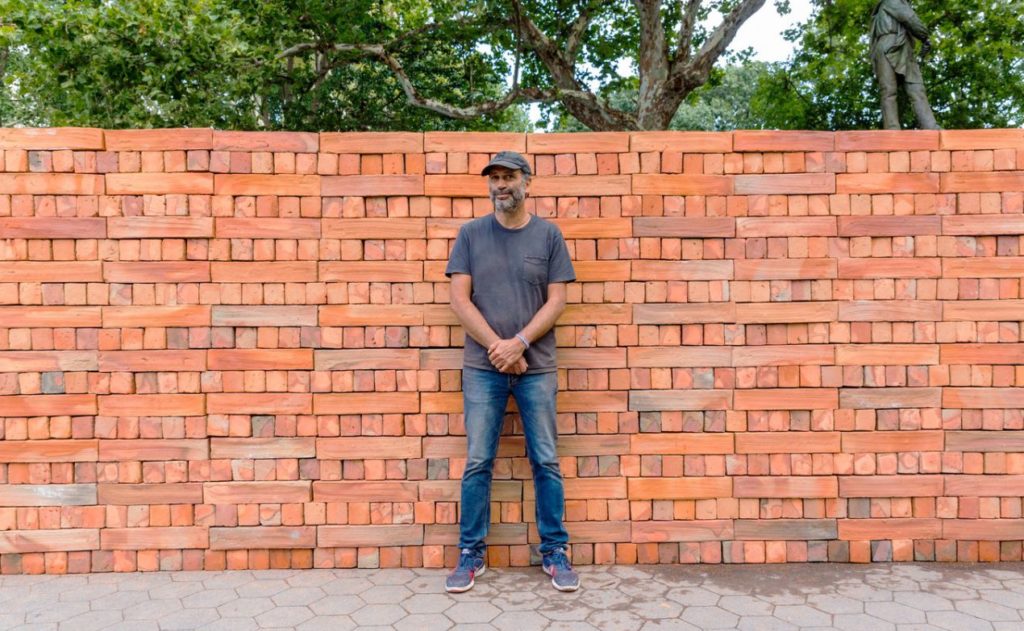
The Mexican artist, Sodi, in Washington Square Park last year. Image courtesy of Galerie Magazine
The son of a chemical engineer and a student of Marxist philosophy, Sodi was diagnosed attention deficit disorder and dyslexia at the young age of four.. Thankfully, instead of treating him with medication, his parents enrolled him in art therapy classes three times a week for the next ten years. “There are three things that keep me calm: Making art, sitting in front of a fire, and watching fish swim around an aquarium,” says Sodi.
The artist’s first significant break came in the late 1990s, when, after working in Paris for a year, he was collecting a group of his drawings from the framer. Told that a collector wanted to buy the whole bunch, made Sodi realize that he could actually do what he loves and live off it. It was truly the best of both worlds!
